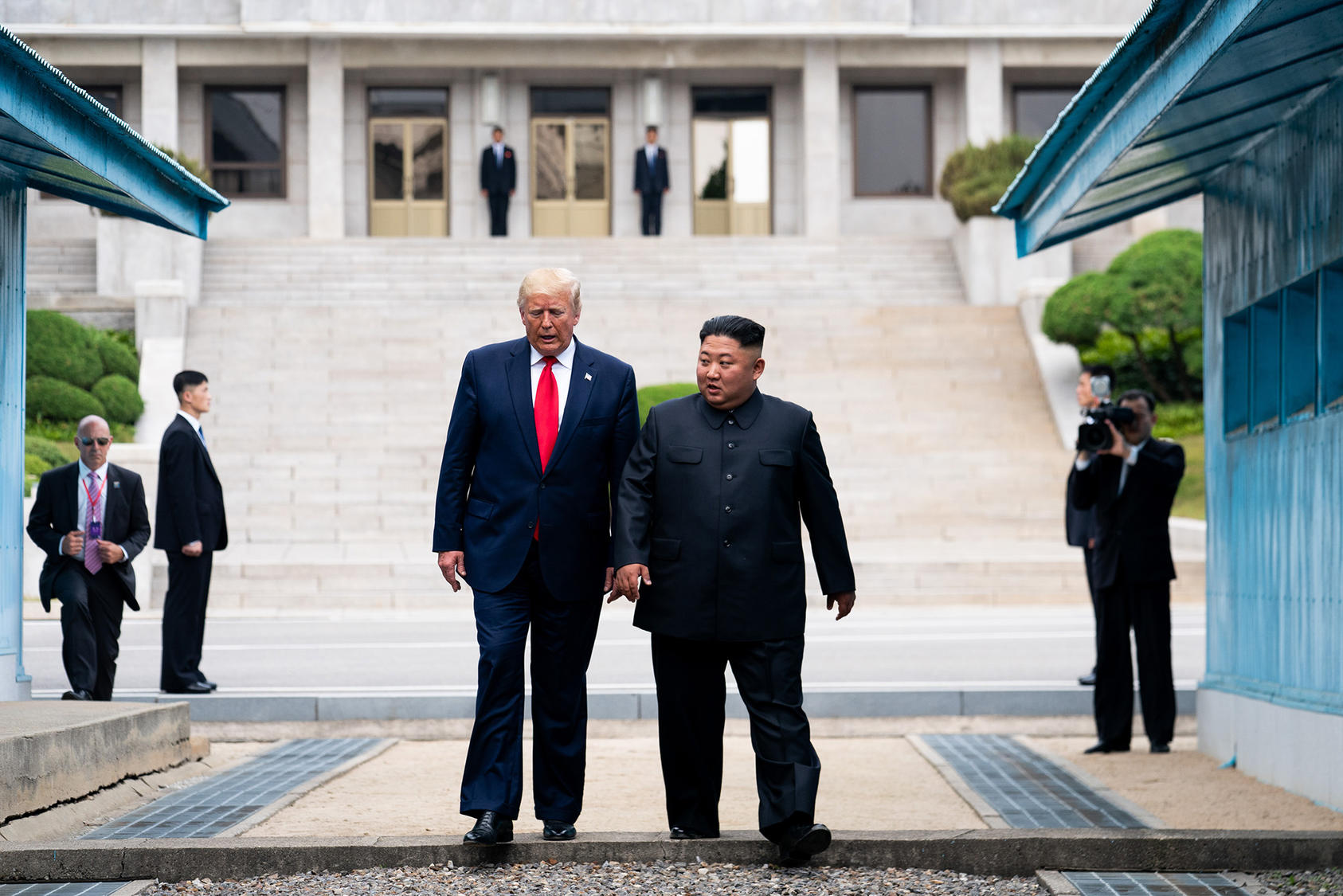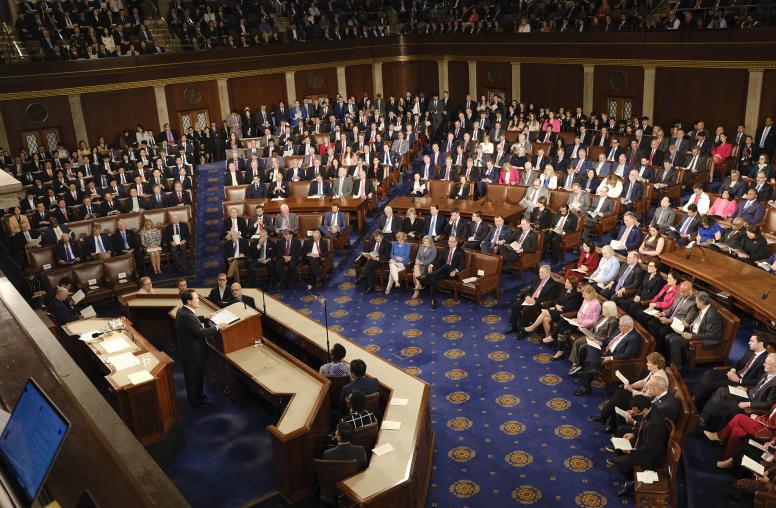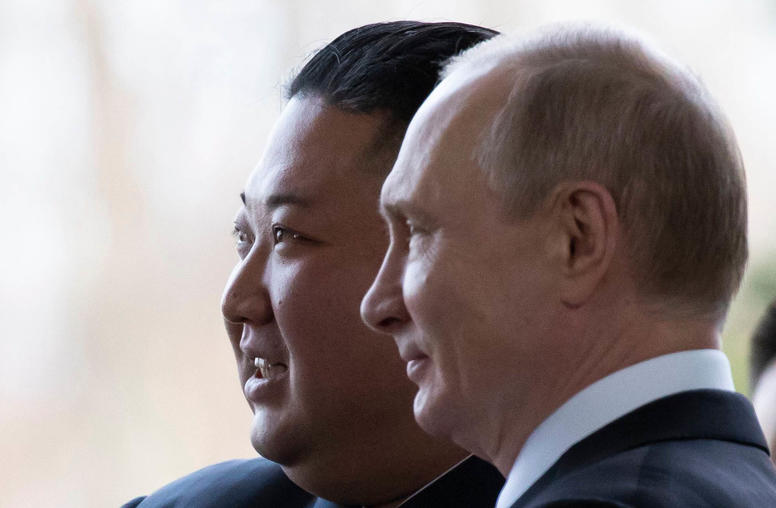The North Korea Show: More Than a Photo Op
Senior U.S. experts on North Korea say the new talks announced Sunday offer possibilities—but also hard work.
News coverage of President Trump’s meeting with North Korean leader Kim Jong Un has focused significantly on the optics of their televised encounter at the demarcation line separating North and South Korea. But according to two senior U.S. experts—Ambassador Joseph Yun, the former U.S. special representative for North Korea policy, and Frank Aum, who served as advisor for North Korea to four U.S. defense secretaries—the announced plan for a resumption of working-level talks is potentially significant.

First, what is the big-picture significance of this widely broadcast encounter?
Frank Aum: There are legitimate criticisms about this meeting being a superficial photo opportunity and a legitimate argument that the state of U.S.-DPRK [Democratic People’s Republic of Korea] negotiations is really no different than where we were nine months ago, when working level negotiations were supposed to start. But there were some important benefits.
For one, this was a historic meeting, the first time that a sitting U.S. president visited North Korea. Trump can point to this meeting to upend the narrative that U.S.-DPRK negotiations are stalled. Also, by signaling that the two sides will begin working level negotiations in a few weeks, Trump can respond to critics who argue that no progress is being made on denuclearization.
Kim Jong Un can claim a similar public relations and propaganda victory. Each meeting he has with the U.S. president legitimizes the North Korean leader. Kim can also claim that the U.S. president reached out to him for a meeting and was deferential by going to Kim's home court. In addition, Kim saves some face after the Hanoi debacle, their meeting cut short in February. And Kim can exert pressure on the skeptics within North Korea who believe that diplomacy is pointless and that North Korea should keep its nuclear weapons. Kim was clearly beaming when Trump was waiting for him at the military demarcation line in Panmunjom.
Beyond the optics, you both are saying that an opportunity exists for real progress. Sketch that for us.
Frank Aum: The biggest takeaway with regard to actual progress is that the two sides agreed to begin working-level negotiations in a few weeks. If they come to fruition, if they address the core issues of denuclearization and sanctions relief rather than just summit logistics or other lower-hanging fruit, and if the two sides demonstrate greater flexibility, then we have the real chance of reaching a breakthrough agreement. A lot of work remains.
Joseph Yun: The most significant result of the Trump-Kim Jong Un meeting Sunday was getting back to negotiations through a working-level group. Trump made it clear that the U.S. team would be led by the State Department, with Stephen Biegun, the special representative, under Secretary of State Pompeo’s auspices. The North Korean team is not clear. The team from the ruling party’s United Front Department that led negotiations in Hanoi and Singapore was dismissed, possibly severely punished, after the failure to reach a deal in Hanoi.
The challenge for the working-level negotiators is to come up with a deal better than the one on the table in Hanoi. For Pyongyang, this must mean significant sanctions relief. For Washington, the denuclearization side of the deal must include more than Kim’s offer in February to close the Yongbyon nuclear complex.
It is hard to imagine anyone other than President Trump taking this step. He is proud of his achievements on North Korea, especially in lowering tensions on the Korean Peninsula, and wants to make further progress. The big question is whether Kim Jong Un is using President Trump to advance his own agenda to become an accepted nuclear weapons state, or does he mean it when he says he is looking to fundamentally change North Korea? The working-level opportunity announced at the Trump-Kim meeting yesterday will likely provide the answers.



